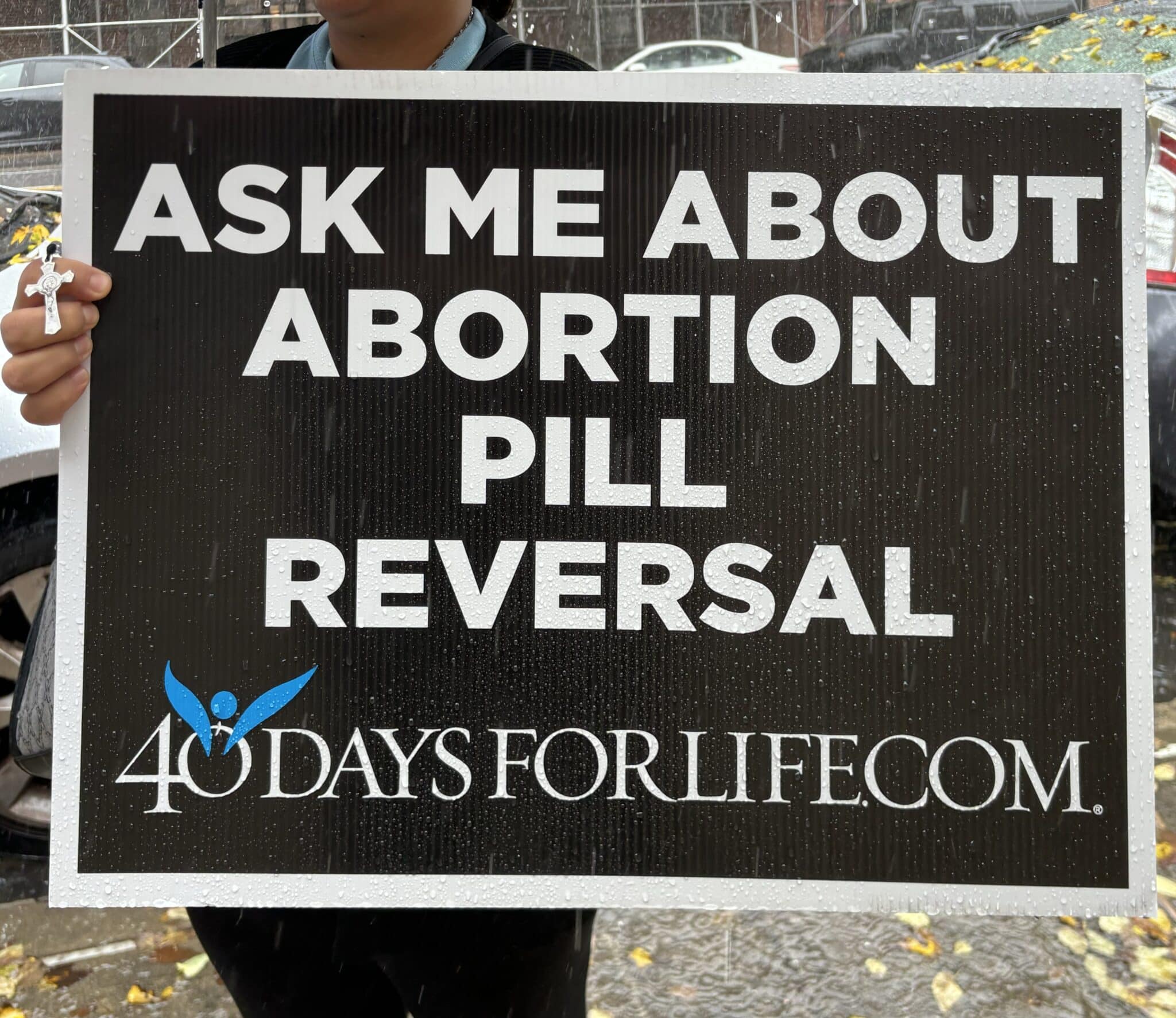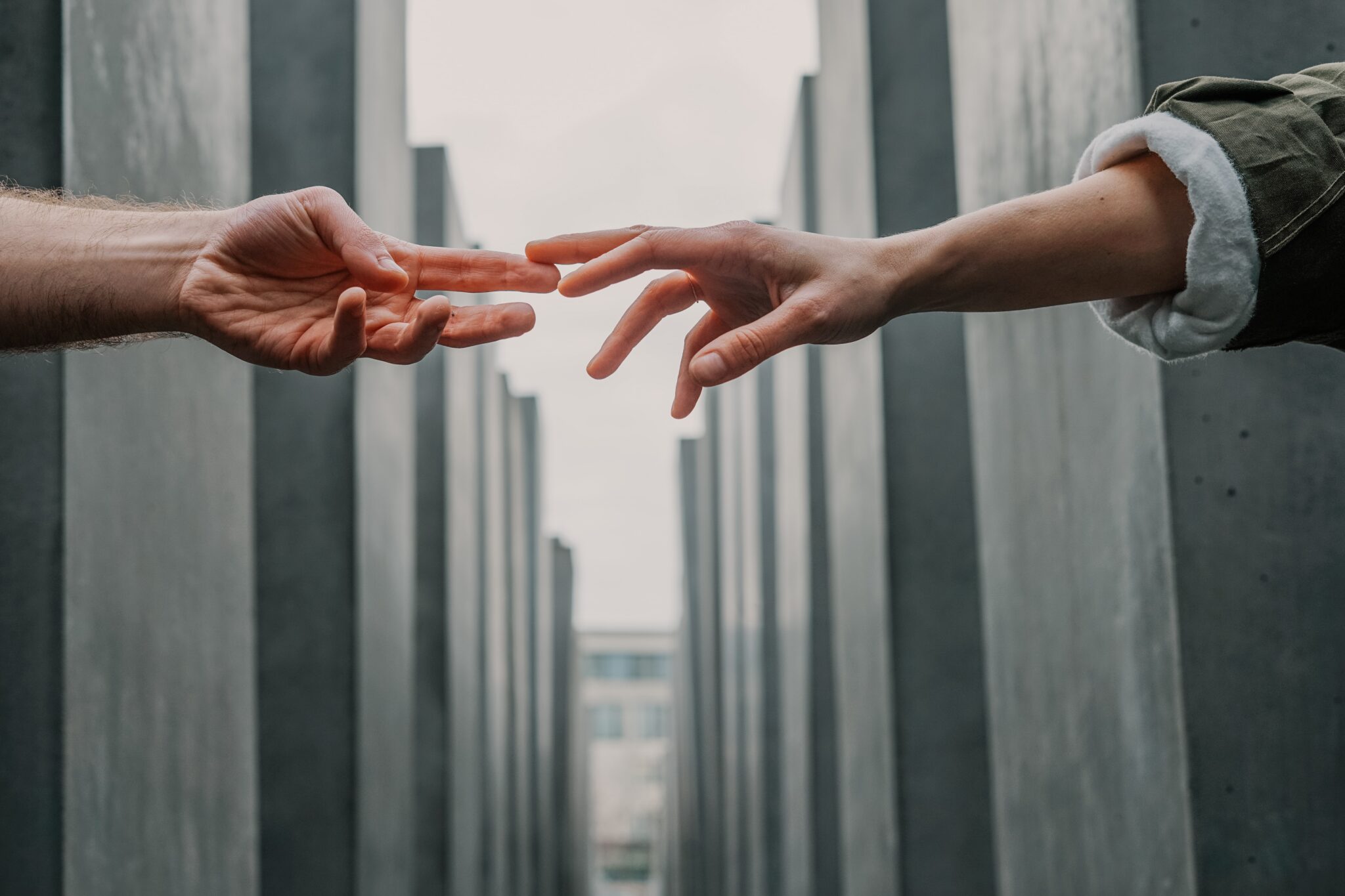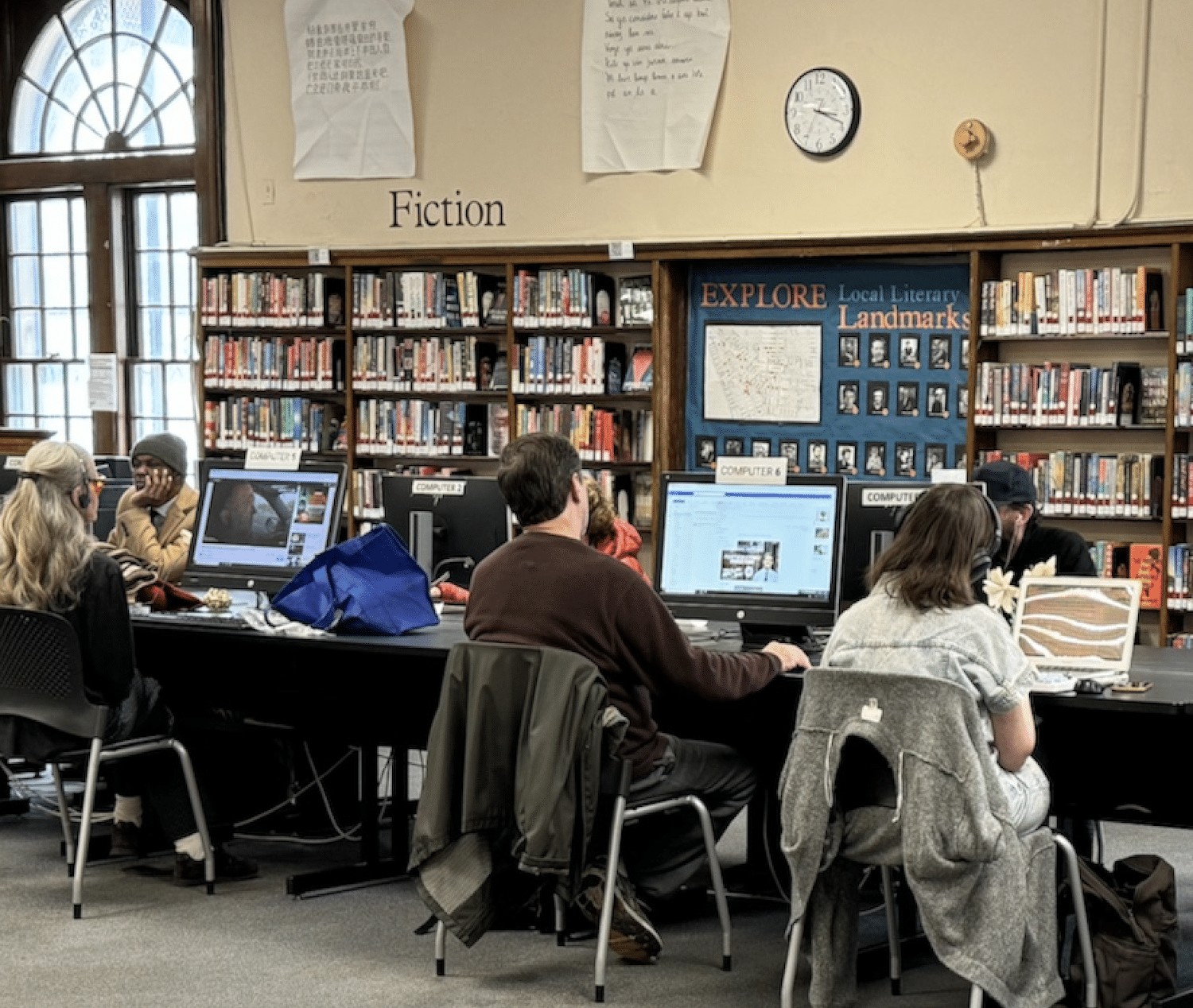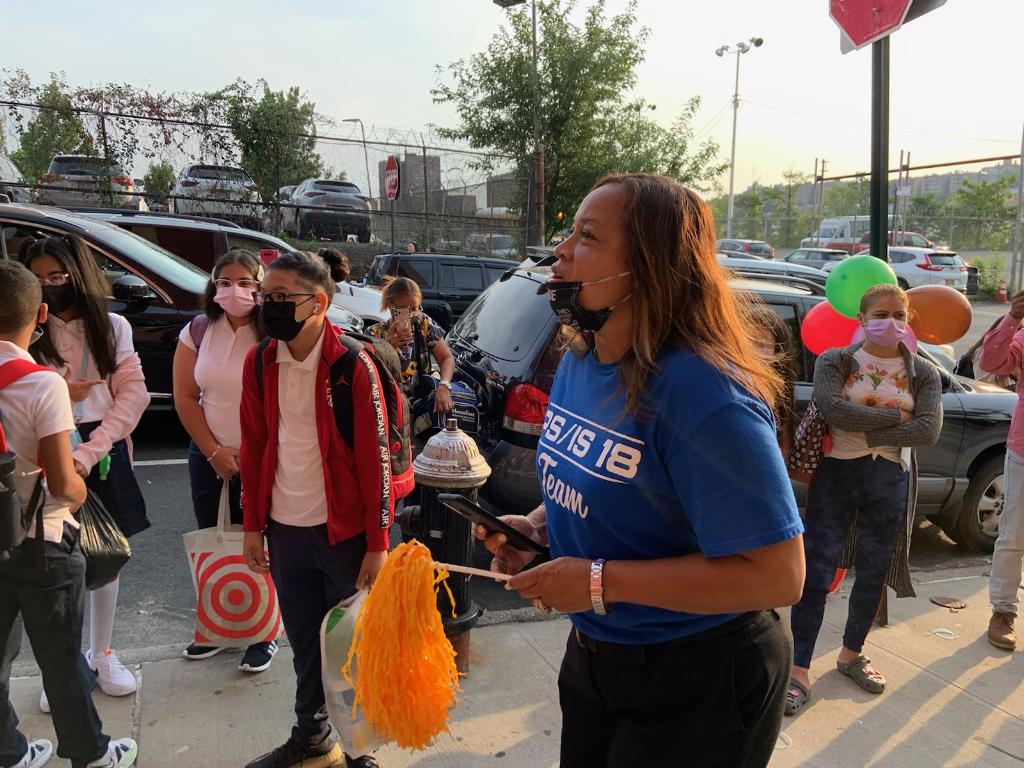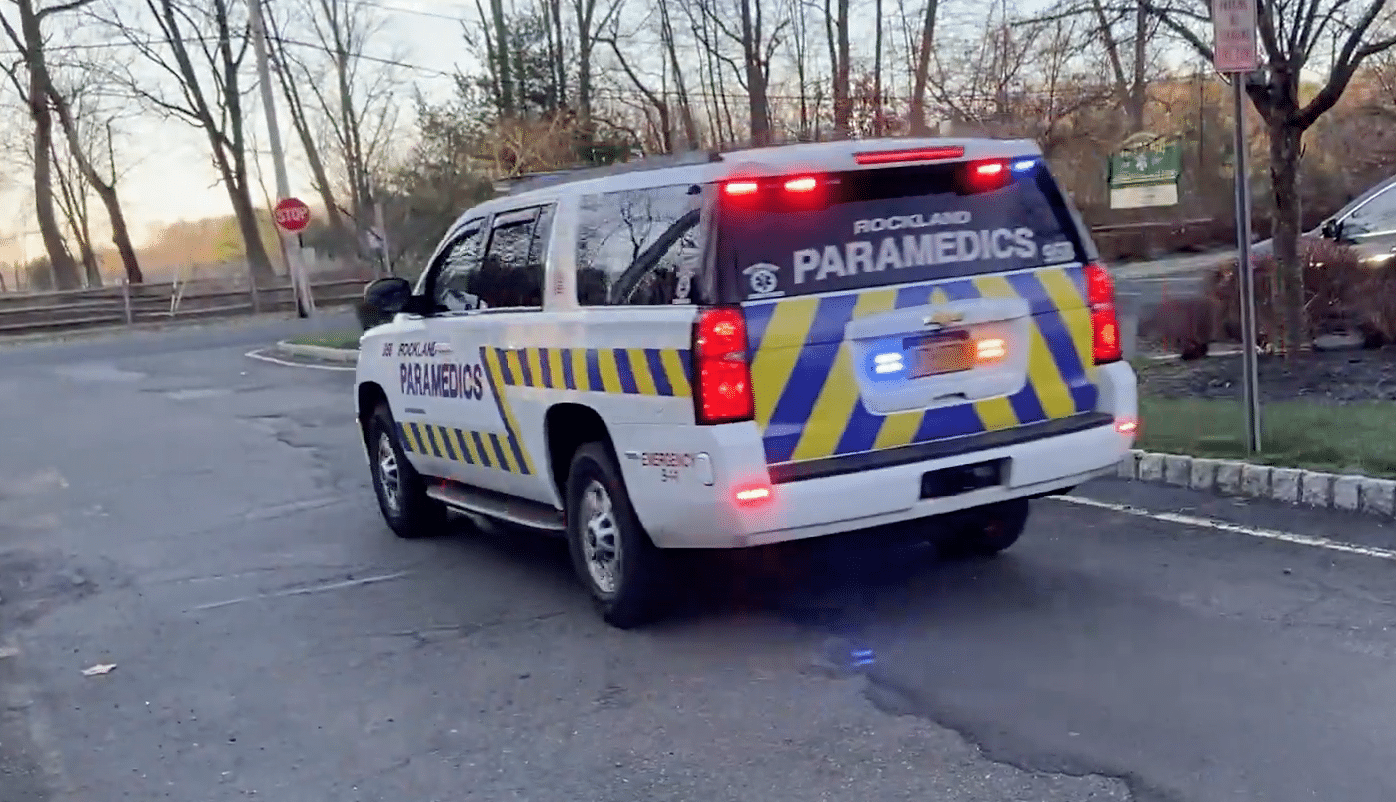BRONX, N.Y.
“We pray for the mothers who are scared to be mothers. We thank you for the kids and mothers saved from abortions,” protestors chant. They stand outside Dr. Emily Women’s Health Center in the Mott Haven section of the Bronx. The eight people with rosaries in their hands are part of a group called 40 Days for Life. The signs they hold read, “Ask me about abortion pill reversal.”
The Texas-based group started its first campaign in 2007. They aimed to end abortion by conducting all-day vigils outside abortion centers, prayers and fasting, and doing community outreach. The protestors target Dr. Emily Women’s Health Center on days it thinks the clinic performs abortions.
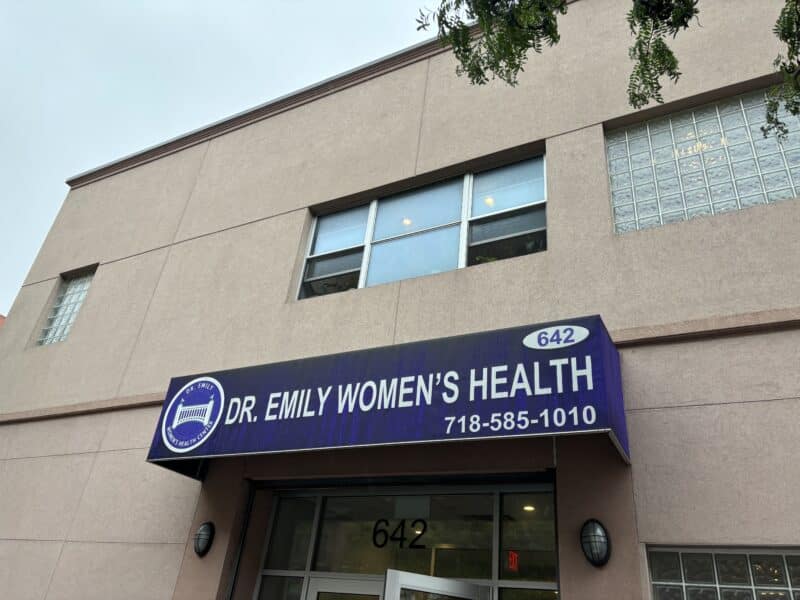
Employees of the clinic say their work is necessary and the medical professionals are careful.
The clinic, on Southern Boulevard, offers a wide range of gynecological services for women, including Birth Control, Colposcopy, HPV testing, Pap Smears, and STD screenings. We went inside the clinic and saw a clean environment with women sitting, waiting to be called in for their appointments. As women walk up to the doors, the receptionist buzzes them in. An ultrasound technician asked us not to use her name because she feared attacks. But she said, “We only go up to first term pregnancy. If [the fetus] is too big, we send [the mothers] elsewhere.”
Besides the traditional abortion procedure, Dr. Emily Women’s Health Center offers the RU486 abortion pill, known as Mifeprex. The abortion pill, also known by its generic name Mifepristone, blocks the progesterone hormone that is needed to continue a pregnancy. The pill has been approved since 2000, according to the FDA. Mifeprex has an effective rate of 97% and a failure rate of 7% after 10 weeks, and is an option for women within the first 10 weeks of pregnancy, according to the women’s center.
The clinic has hired escorts who stand in front of the clinic doors and take women through the protestors’ picket line. “They’re aggressive. They chase you, run you down. I understand their side but there’s two sides to this,” said the ultrasound technician. “They literally come up to your car. I feel bad for the patients. They already feel guilty coming in. Some of these people are 13 years old or come from shelters,” the technician added.
Gloria Fanfal, one of the 40 Days For Life protestors, comes to the clinic every day to pray, sing, and give women pamphlets to persuade them to think twice about their visit.“The abortion [service] is Saturday and Wednesday. Some people say [the clinic] changed [the days of the abortion service] because it was Thursday but now it is Wednesday. But now I think its Wednesday and Thursday because I come here on Thursdays and there are many women who come out of the clinic,” Fanfal said.
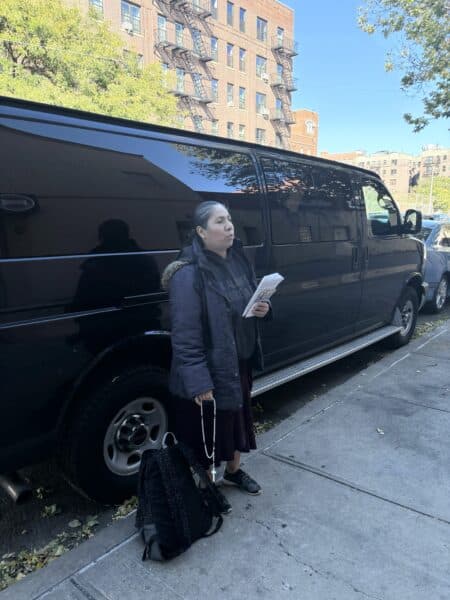
Gloria Fanfal stands ready to hand out pamphlets. Photo by Katelyn Polanco.
“40 Days For Life is a national ministry with volunteers to come pray in front of locations,” another protestor explained. He pointed to the group’s website to describe its method:, “A door-to-door petition and education drive reaches out to every household in your town or city. People visibly show their support for 40 Days for Life by wearing wristbands, placing signs in their yards, or displaying bumper stickers on their vehicles.”
Another protestor refused to give her name and said, “We do not have the freedom to take away anyone’s life, only God,” she said. “A baby is a human being who doesn’t have a voice and who can’t defend itself. That is why I’m here, to defend these babies’ lives.”
As vehicles and women arrive at the clinic, demonstrators approach them and hand them pamphlets. When patients enter, volunteer escorts block the doors to help the women.
Jennifer Trinidad, a patient said, “Everybody has a right to do what they want. You know, you don’t know for what reason they want to terminate a pregnancy, so I don’t really judge nobody.” Renee Carter, who recently began to use the clinic for birth control said, “It’s a free country. You can do whatever you want but when you’re screaming at people, that’s a different story.”
Neighbors of the clinic who have watched the protests and the women trying to get services said the protestors make things hard. “It’s not just an abortion clinic. It’s to get all around care to see if you’re okay.” Dawn Jones said. She is a resident of the area and was accompanying a patient. “I believe that a woman has to check her body because if she’s about to have a baby or endeavor in sexual activity, you have to be safe. Better to be safe than sorry. We’re women, we got to take care of ourselves.”
Another resident explained, “Everybody has their own opinion. I had [an abortion] when I was very young, but I respect everybody else’s opinion. I mean, everybody’s entitled what to do with their own body.” She went on to describe her experience. “Back then I was very young, and I didn’t know what to do. I was so confused and had no support. If [the protestor] would’ve come to me, I would’ve changed my mind, maybe.”
If she did get stopped, one of these protestors would hand her a pamphlet offering a retreat. Protestor Gloria Fanfal explained that it is a place operated by a Catholic religious order. “The Sisters of Life is a retreat. They give you food and if you are pregnant, they help you with your baby. They also help you get an apartment for free. They help you with everything if you’re pregnant.”
But Bronx residents we spoke with like Dawn Jones point out what they think is important. “If that’s your choice, that’s your choice. It’s a women’s right to choose. If you know that something is going on you can’t possibly take care of, you have to be able to figure out your options.”
Series: Community
